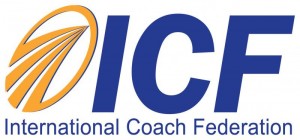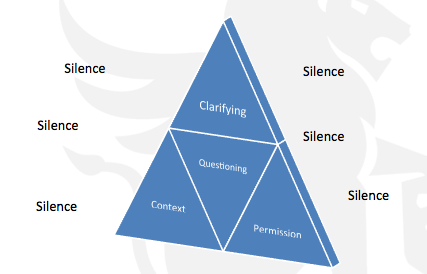CIMBA Italy Professional Coaching Training
The aim of this program is to train you as a professional coach. Participants will learn and practice professional coaching skills. Therefore, the course is highly experiential. You will earn the required 60hrs to apply for the first level accreditation (ACC) with the International Coaching Federation (ICF). You will be able to work with executives, managers or anyone willing to be coached.
The ICF defines coaching as “partnering with clients in a thought-provoking and creative process that inspires them to maximize their personal and professional potential.”
The client is the expert of their life while the coach is an expert of the process. The process aims to inspire client-generated solutions and strategies. Therefore, coaching is distinct from counseling, mentoring and consulting.
Coaching skills are becoming increasingly relevant to support others as global complexity and uncertainty increase. Some key benefits of using a coach include improved performance, productivity, outlook and balance.
At CIMBA Italy, we aim to support our students and clients in becoming their best. And coaching is the key component in that, in all of our leadership development programs. We will empower you to expand the potential of others.
We encourage you to check out the ICF website to learn more about coaching and individual accreditation.

Course Modules & Program Delivery
The course will be conducted in English and the instructors are proficient in Italian as well.
- Orientation Live Teleclass
- 3 Day In Person Intensive
Location: CIMBA Italy’s Paderno del Grappa Academic Campus
- 11 Live Teleclasses
60hrs total including 48 Contact Hours, 12 Self Study Hours
In addition, to ICF competency-specific learning and practice, students will study and apply insights, tools and techniques from neuroscience including brain basics, mindfulness, reappraisal, and habits.
Participant Pre-Requisites
- Coach’s Mindset: Participant has personal commitment to a growth mindset and self-inquiry. They have experience leveraging their own challenges and contemplating subsequent learning. A personal willingness and desire to reflect, introspect and grow. An open attitude to receiving feedback for improvement and experience with how personal intentional change works. Ready and open to be coached in and outside of class and to be given feedback about their progress as a coach.
- Strongly Recommended: CIMBA L.I.F.E. (Leadership Initiative for Excellence) Training
Instructors
Katiuscia Baggio, MBA, PCC – Katiuscia, a native Italian, has been coaching managers, entrepreneurs and international business students for over 10 years. She is also the director of CIMBA Italy’s Executive Education programs. In addition, Katiuscia is a leadership trainer for various programs including CIMBA’s LIFE Training.
Tuition & Registration
4,500 Euros plus VAT
Early Bird discount: 4,000 Euros plus VAT
Refund Policy:
100% refund 60 days prior to the training start date
50% refund 59 days – 30 days prior to the training start date
0% refund less than 30 days prior to the training start date
Questions? Ready to register? Email executive@cimba.it to set up an appointment to speak with one of the trainers directly.
Coaching Approach
Our training takes the 11 ICF Core Competencies and translates them into a manageable framework where the ICF competency of “Coaching Presence” serves at the foundation. Building from Coaching Presence (ICF 4), is Active Listening (ICF 5) and then Powerful Questioning (ICF 6).
Professional Coaching Foundations

The key is Questioning, not simply asking questions. Questioning denotes a process. This process includes powerful questions, clarifying, placement, permission, and spaciousness through silence.
Professional Coaching Powerful Questioning

The final conceptual part of professional coaching is where a coach facilitates a coachee’s learning through:
- Establishing Trust & Intimacy (ICF 3)
- Creating Awareness (ICF 8)
- Direct Communication (ICF 7)
- Goals & Action (ICF 9 &10)
- Progress & Accountability (ICF 11)
Finally, what is present through each coach conversation is a commitment to the Coaching Agreement (ICF 2) and Coaching Ethics (ICF 1).
PROFESSIONAL COACHING LEARNING FACILITATION





